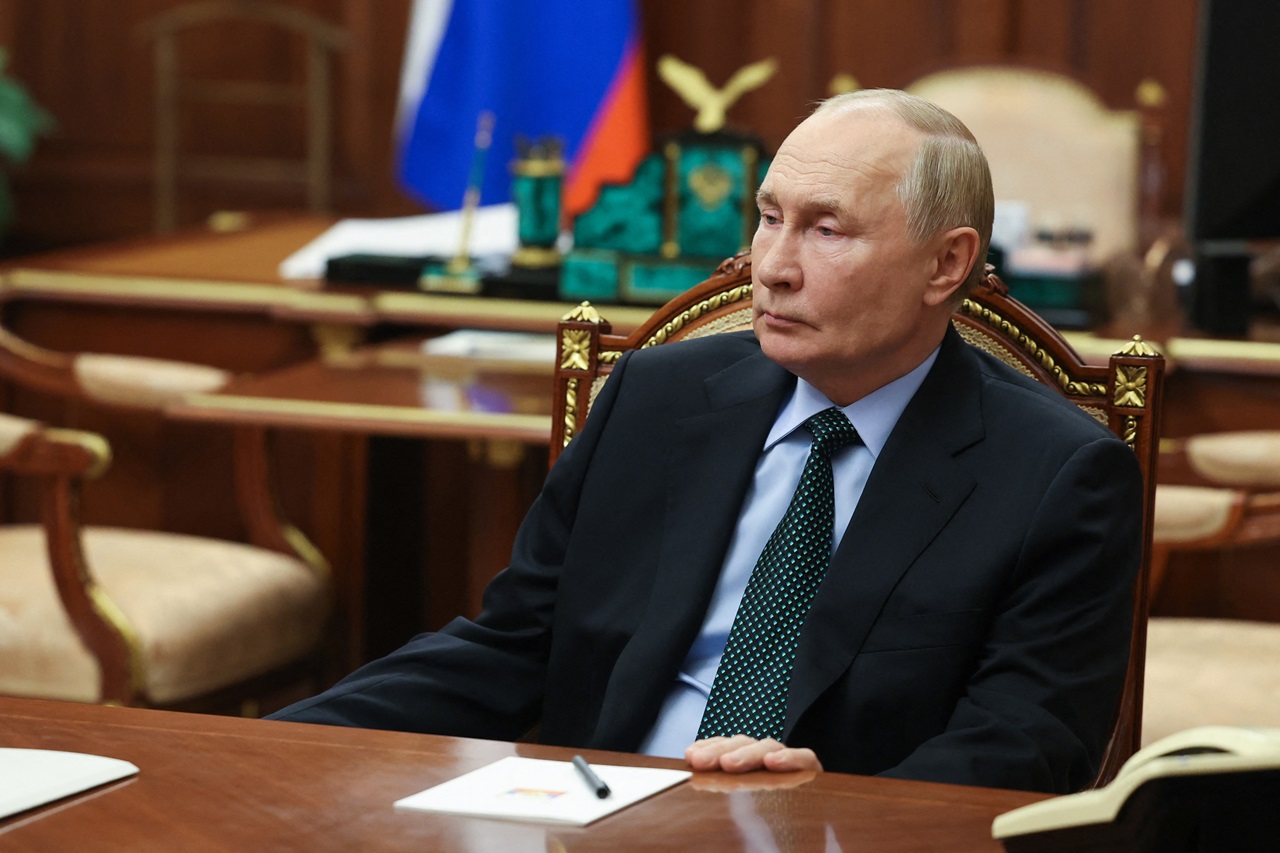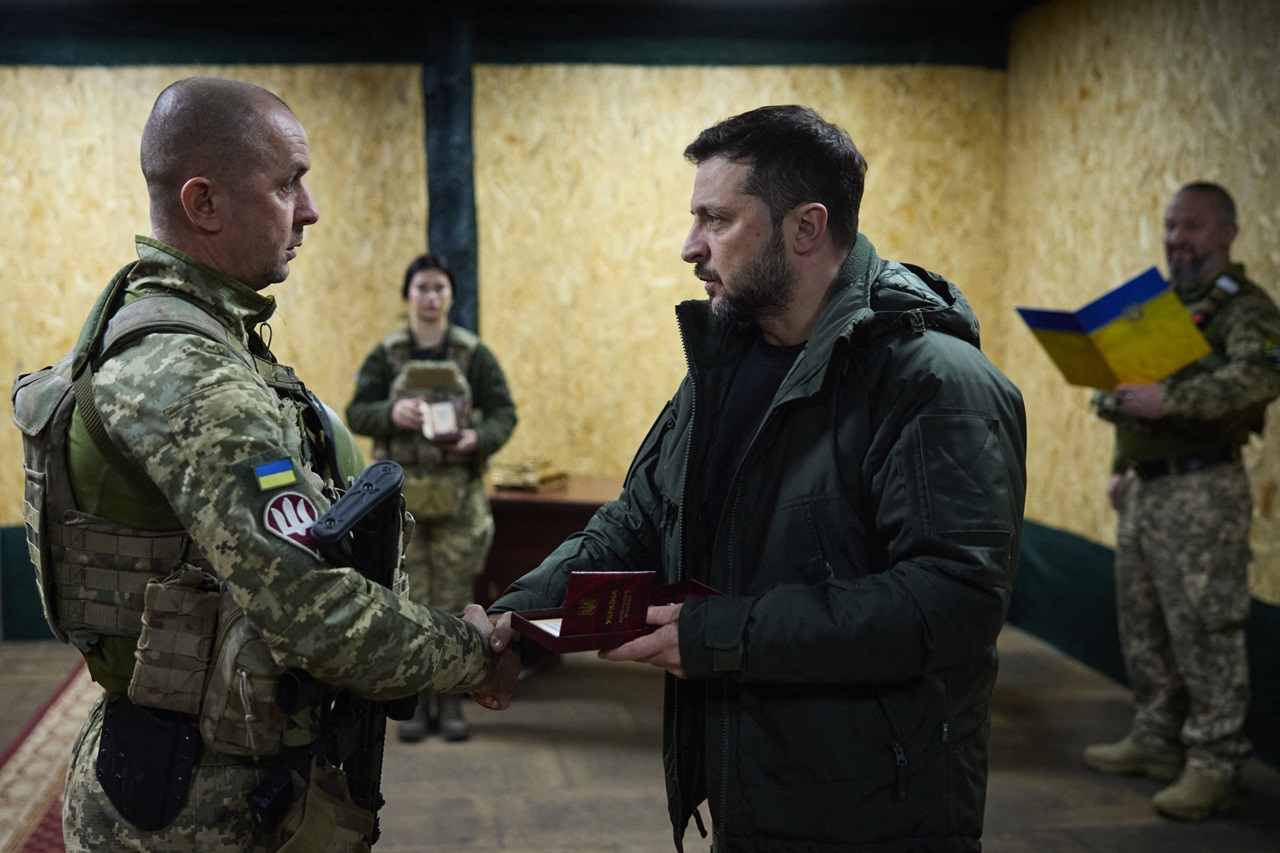
Putin authorizes use of nuclear weapons in war with Ukraine
The White House condemned what it called Russia's “irresponsible rhetoric.” High tension in Europe.
Russian President Vladimir Putin on Tuesday signed a decree broadening the scope of when Moscow can use nuclear weapons in a clear message to the West and Ukraine.
The move comes on the 1,000th day of Russia's offensive on Ukraine and after the United States gave Kyiv permission to use long-range missiles to strike military targets inside Russia.
The new doctrine outlines that Russia will consider using nuclear weapons against a non-nuclear state if they are supported by nuclear powers.
"Aggression by a non-nuclear state with the participation of a nuclear state is considered as a joint attack," Kremlin spokesman Dmitry Peskov told reporters on Tuesday -- a clear reference to Ukraine and its Western backers.
"It was necessary to bring our principles in line with the current situation," Peskov added, calling the update a "very important" document that should be "studied" abroad.
Russia "has always viewed nuclear weapons as a means of deterrence," he said, adding that they would only be deployed if Russia felt "forced" to respond.
Putin has issued a string of nuclear threats throughout the almost three-year campaign against Ukraine, triggering concern in the West over rhetoric it has slammed as reckless.
The new doctrine also allows Moscow to unleash a nuclear response in the event of a "massive" air attack, even if it only uses conventional weapons.
When the Kremlin first unveiled the proposed changes in September, Peskov called it a "warning" against anybody who was thinking about participating "in an attack on our country by various means, not necessarily nuclear".
Moscow's nuclear umbrella will also be extended to its close ally Belarus under the new doctrine.
Speaking on the 1,000th day of the conflict, Peskov said the "collective West" had unleashed a "war" against Russia, pledging that Moscow would see what it calls its "special military operation" through to the end.

The U.S. position
The White House condemned Russia's "irresponsible rhetoric" Tuesday after Vladimir Putin eased Moscow's rules for nuclear strikes, but said it saw no need to change its own force posture.
Putin's move came after Washington allowed Ukraine to fire long-range US-made missiles into Russian territory, with Moscow saying Kyiv had used the weapons for the first time on Tuesday.
RELATED CONTENT
"This is more of the same irresponsible rhetoric from Russia, which we have seen for the past two years," a spokesperson for the US National Security Council told AFP.
The spokesperson said that "we were not surprised by Russia’s announcement that it would update its nuclear doctrine" and that Moscow had been "signaling its intent" to do so for several weeks.
"Observing no changes to Russia’s nuclear posture, we have not seen any reason to adjust our own nuclear posture or doctrine in response to Russia’s statements today."
US officials have previously confirmed that outgoing President Joe Biden, who is attending a G20 summit in Rio de Janeiro, gave the green light for ally Kyiv to use long-range missiles against Russia.
While the White House has not done so on the record, it has hinted that the move is a response to Russia's use of North Korean soldiers against Ukraine.
The deployment of Pyongyang's troops is a "significant escalation... and we warned that the United States would respond. I won’t get into the details of that response today," the National Security Council spokesperson said.
The US reaction came as Ukrainian President Volodymyr Zelensky accused G20 leaders of failing to act after Putin's nuclear rule change.
Ukraine is anxiously watching to see whether US President-elect Donald Trump will switch off American military aid and try to push through a peace deal that could force Kyiv to cede territory to Moscow.
© Agence France-Presse










LEAVE A COMMENT: